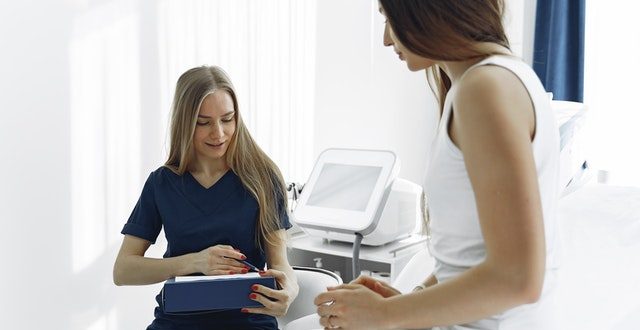This year has shown all of us how important it is to look after our health and immune system. Of course, a lifestyle change can be one thing to turn around poor health, however, it is also crucial to get the women’s health checks meant to share vital health information. Unfortunately, these tests and screenings can get put off and even ignored altogether. I highly recommend that you speak to your physician to get a better idea of any specific test you might need. In the meantime, here are some of the most common and useful tests to consider.
Blood Pressure
Your blood pressure should be checked every two years after you turn 20 years of age. However, if your blood pressure is above 120/80, then your physician might ask you to get your pressure checked more often. After the age of 40, you should check your blood pressure annually, as stress and age can cause it to go up. High blood pressure is known to be related to circulation and heart problems, including stroke and heart attack.
Body Mass Index
Body mass index is something to monitor, starting at the age of 18. This index helps you keep track of your body’s composition and will tell you whether you are in a healthy weight range for your age and build. Having an out of proportion body mass or obesity can contribute to diabetes and cardiovascular issues. Though BMI is fairly easy to calculate on your own, your doctor or fitness expert can help you understand the numbers.
Pap Smear
Pap smears are one of the best ways to detect the presence of cervical cancer and one of the women’s health checks you don’t want to skip. It is, therefore, recommended to begin this important test at age 21 and have it done every three years. Unless there are problems or suspicion of cancer, they should be done until the age of 65. It’s important to catch anything suspicious as early as possible so cancer doesn’t grow out of control and spread to other parts of the body. A simple pap smear done at your doctor’s office is the best way to detect signs of cancer before this develops.
Mammogram
Though the mammogram has elicited controversy about its safety, it still remains one of the best ways to detect breast cancer early. However, there are newer tests that use thermography (thermal imaging), alleviating the need for typical X-ray radiation. You should also know that there is some controversy about how often the mammogram is needed and at what age to start or stop. However, speaking to your doctor can help you better understand how often to book an appointment. That said, if you have any concerns regarding your breast health, scheduling a mammogram in Lake Hopatcong, NJ, or one in a nearby area, is an essential step to ensure your well-being.
Bone Density
Bone density screenings are crucial and among women’s health checks all women should have once they pass menopause. This is primarily due to conditions like osteoporosis that are common when estrogen declines. That said, it is not unheard of to get this test long before menopause. Some fitness experts advise it before weight training or engaging in difficult fitness goals.
Blood Glucose Tests
Among other labs, your doctor will likely order a blood glucose test. This should be done every three years after the age of 45 and can help you identify the signs of diabetes and para diabetes. If you have a family history of diabetes or symptoms that are cause for concern, your doctor might order this sooner.
Cholesterol
High cholesterol levels are often associated with an increased risk of heart diseases or stroke. This condition generally derives from lifestyle and nutrition and can lead to serious consequences. Therefore, it’s important to get cholesterol levels checked regularly, usually every four years but some doctors will order a screening annually if you ask. Also, if your cholesterol levels are particularly high or at increased risk of heart disease, your doctor might recommend more regular screenings.
Colon Cancer Screening
Color cancer screenings are something that many women tend to put off. However, these tests can help you identify the signs of colon cancer before more serious complications arise. Traditional colonoscopies are done outpatient and don’t require a hospital stay. Typically, this important screening is done for the first time at age 50 and repeated every five years thereafter. More recently, home screening kits can be done if you are at average risk for colon cancer and have never had a previous poor result.
Infectious Diseases
Lastly, you might need to undergo a screening for infectious or sexually transmitted diseases, such as hepatitis, herpes, HIV, and chlamydia. While these are not generally ordered by physicians unless asked to by the patient, they can be helpful to identify infections early. Some doctors may not even do them, so you might need to go to a specialty clinic like Tarrant County HIV testing. These types of professionals will proceed with fast, discreet, and specialized tests for all patients.
**** This post is strictly informational and is not meant to replace the advice of your healthcare provider. Women’s lifelink, its owners, administrators, contributors, affiliates, vendors, authors, and editors do not claim that this information will diagnose, treat, or improve any condition or disease.
 Women's Life Link Be Well, Be Happy, Be YOU!
Women's Life Link Be Well, Be Happy, Be YOU!







